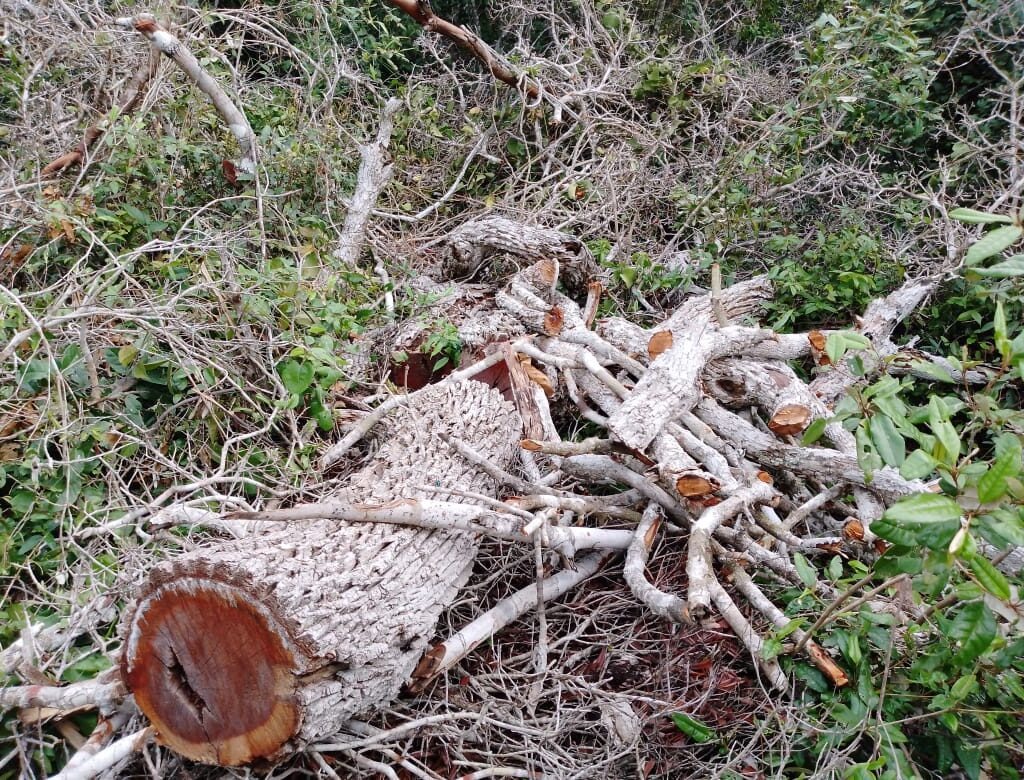By Primrose Omoto
Concerns have been raised after a foreign national, who inherited property in the Warandale area, has been accused of cutting down these trees that are habitat to the endangered black and white Colobus monkeys.
The recent incident disrupted the usual serene environment as local residents are outraged by the continued destruction of the habitat.
Locals argued that foreigners often get away with breaking the law without facing prosecution.
Despite complaints lodged with the police by neighboring property owners, no significant action has been taken so far.
The Kenya Forest Service (KFS) confirmed that the individual did not possess the necessary license to carry out such activities.
Veronika Mbaya, a concerned resident, emphasized the need for a resident’s association to policy environmental affairs.
“Diani residents need an association to ground laws on what can and cannot be done within its environs. It should be applicable to both current and new landowners. The parameters should also be included in sale agreements and leasing contracts.” She said,
Environmental activists have stepped in to advocate for stricter enforcement of conservation laws and greater accountability for those who violate them.
The situation remains tense as residents push for the authorities to intervene and prevent further damage.
Elias Kimaru, a senior conservation officer with experience in community and reforestation projects like Lima Self Help Group, encouraged locals to report such incidents to Kenya Forest Service or the Colobus Conservation Centre.
The Colobus Conservation Centre is a non-profit organization that has been working to support and advocate for forest conservation to promote the long-term survival of the nationally threatened species since 1997.
Human and urban development continues to affect the populations of the primate species in the southern coast of Kenya.
The highest cause of mortality was attributed to accidents caused by automobiles and overhead power lines involving the colobus monkeys.
This was tempered by building aerial crossing ladders along the Diani beach road.
The Colobus Conservation Centre officers that attended the scene reported that the accused individual refused to pay for the installation of new monkey ladders to mitigate the harm caused.
Unlike the common yellow baboons that seem to love open areas, colobus monkeys thrive in the canopy of trees hence are vital to their survival.
Fredrick Onyancha, conservation manager at the Center advises residents to plant more trees to counter the effects of urban growth to the colobus habitat.
“The tree nursery at the center is well stocked. The local community is welcome to purchase indigenous trees and plant on their properties to restore the colobus habitat, “he said.
The center continues to support the community by helping concerned individuals to select the right trees for the soil profile using a detailed catalogue on indigenous tree species and experienced forestry staff for consultation.


